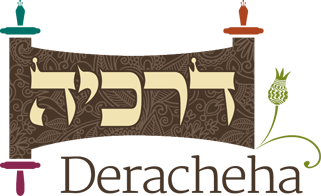| ♥ 0 |
Hi,
Marked as spam
|
|
Private answer
This is an increasingly important question for the Dati Leumi community. We hope to return to it in article form at a later time, but here are some initial notes. The Israeli Chief Rabbinate has repeatedly issued halachic opinions opposing women serving in the IDF in any capacity. The major halachic concerns are the ones that you mentioned: tzeniut, the prohibition of a woman wearing a man’s article of clothing (keli gever), and whether there is a related prohibition for a woman to go out to war. The Torah’s most prominent mention of tzeniut occurs in the context of the mitzva to maintain the sanctity of the camp during war (Devarim 23:15). Many roles in the army can create complex situations and interactions between men and women, especially when women are under male command. By nature, the army can be a hyper-masculine militaristic environment inhospitable to women and to some Torah values. This is the central reason why many halachic authorities have prohibited or voiced concern about women volunteering to enlist. (See, for example, Rav Melamed’s discussion in Peninei Halacha, here.) Additionally, Devarim 22:5 prohibits a woman having “male articles” upon her, but does not specify what those articles are. Targum Onkelos translates this as referring to “keli zayyin,” which can mean weapons or armor. In the midrash halacha (Sifri 226:5), Rabbi Eliezer ben Ya’akov derives from this verse that a woman should not “wear ‘keli zayyin’ and go out to war.” A parallel in the Talmud (Nazir 59a) doesn’t specify the word “wear.” Rambam (Avoda Zara 12:10) rules that a woman should not “wear armor or anything like it,” which could include a weapon. If the issue is wearing a weapon, as but one example of a male adornment, then one might argue that this, like other aspects of keli gever, depends on time and place, and may no longer be prohibited in Israel, where women in the IDF routinely carry weapons (Rav Yehuda H. Henkin, Techumin 28). But there might be an independent issue of bearing a weapon (Seridei Eish 2:41), or wearing a weapon in the way of those who make war (Iggerot Moshe IV:75), in which case it would be prohibited. (Though women may wield a weapon in self defense.) To complicate matters further, the Talmud (Kiddushin 2b) tells us that “It is not the way of a woman to make war,” while the Mishna (Sota 8:7) relates that “in milchemet mitzva (obligatory war) everyone goes out, ‘even a groom from his chamber and a bride from her chuppa’ (Yoel 2:16).” Even those, like Rambam (Melachim 7:4), who rule that women are obligated to assist with a milchemet mitzva, may refer to women assisting with logistics, and not with combat (Radbaz there). While many halachic authorities agree that Israel’s defensive wars fall under the category of milchemet mitzva, the halachic status of ongoing IDF activities is subject to debate. That also helps explain why it is not considered obligatory for halachically observant women to be drafted, especially since National Service (Sherut Leumi)may often itself contribute to defense efforts on the domestic front. In summary: There is halachic consensus that a woman should not join a combat unit, with the possible exception of a case of necessity in a milchemet mitzva. There is also a strong halachic argument against women joining the IDF at all, since many halachic authorities prohibit it or counsel against it, and since there are other ways to contribute to national security. Still, there is some halachic basis to support a woman joining a non-combat unit that will enable her to contribute to the country while meeting her community’s standards of tzeniut, with minimal use of weapons (viz., Rav Henkin and Rav Melamed, cited above). Rav Baruch Gigi, Rosh Yeshiva of Har Etzion, supports young women enlisting into the education or intelligence corps through an organized group at a midrasha, such as Migdal Oz, which entails spiritual preparation for such service and guidance over its duration. Rabbanit Esti Rosenberg, Rosh Beit Midrash of Migdal Oz, views the essential question as identifying what role and situation is best for a given young woman's spiritual and personal development. As you note, practice and norms are changing fairly rapidly in this area. When a young woman feels that she can find an opportunity to serve in the IDF in a context which will make unique use of her talents and in which she can maintain her religious observance, she and her family should seek out individual halachic guidance, which could continue during potential service, and do careful research about her intended unit. As Rav Gigi suggests, spiritual preparation for service, such as attending a midrasha or mechina beforehand with other religious women who will serve with her, is strongly advisable in these cases. Given that it is less halachically controversial and that it offers a range of roles that contribute significantly to Israeli society and security, Sherut Leumi should be seriously explored as an option for meaningful service in a more religiously congenial framework. It can, however, can present its own challenges, so seeking halachic guidance, performing research, and undertaking spiritual preparation are advisable in making that choice as well. See more Q&A here. Marked as spam
|

